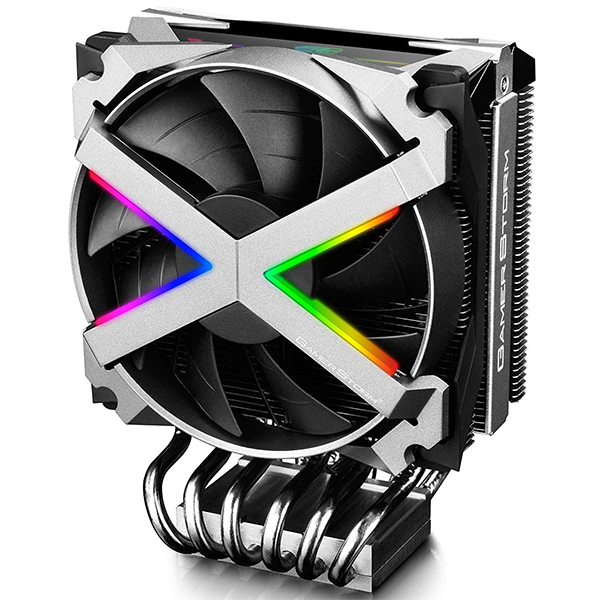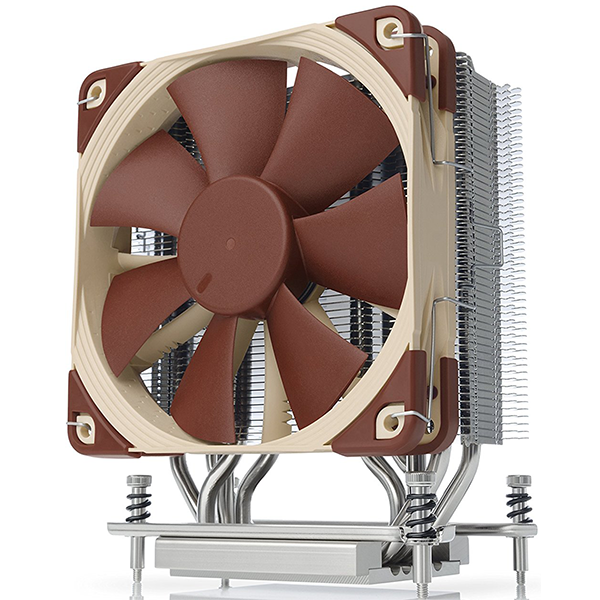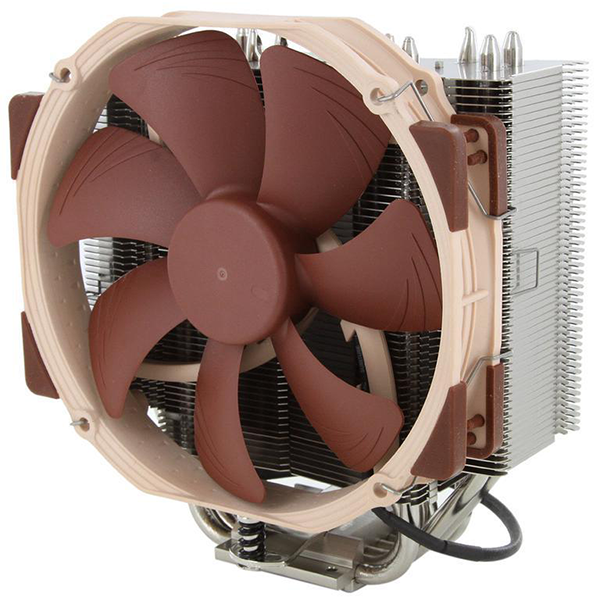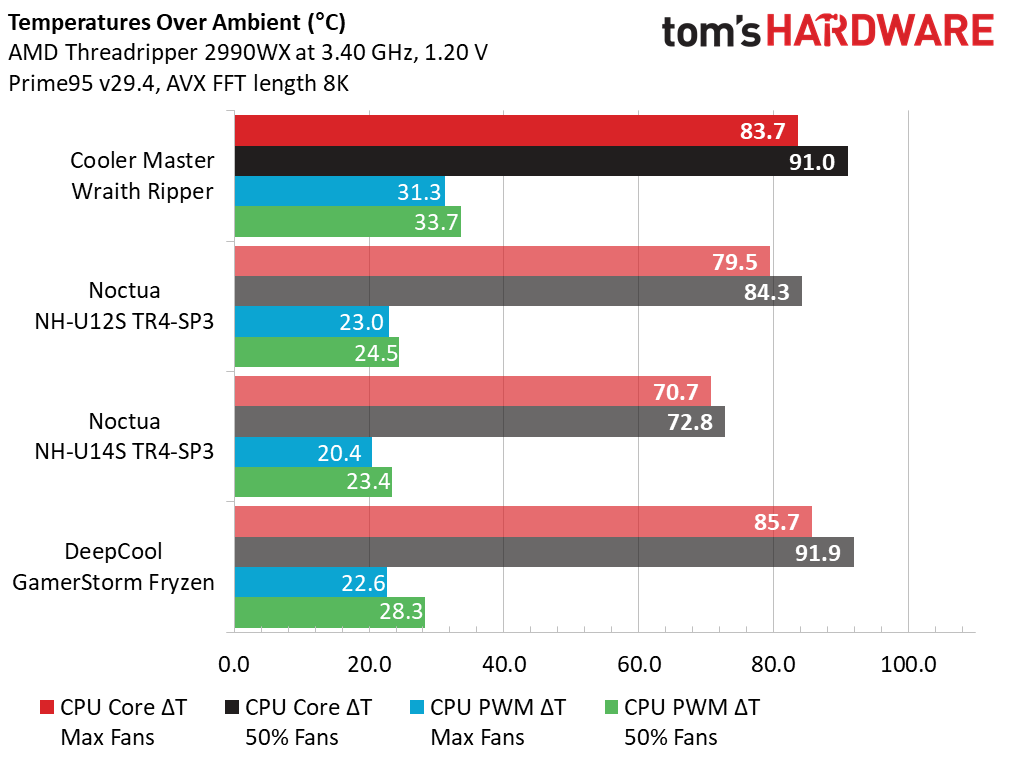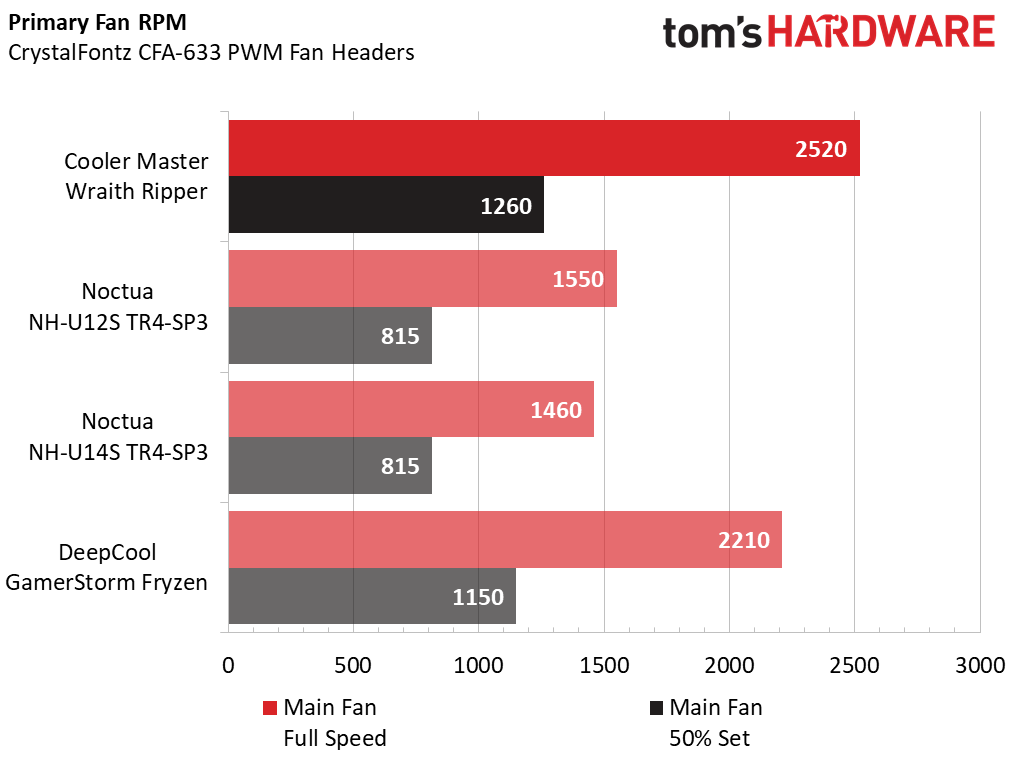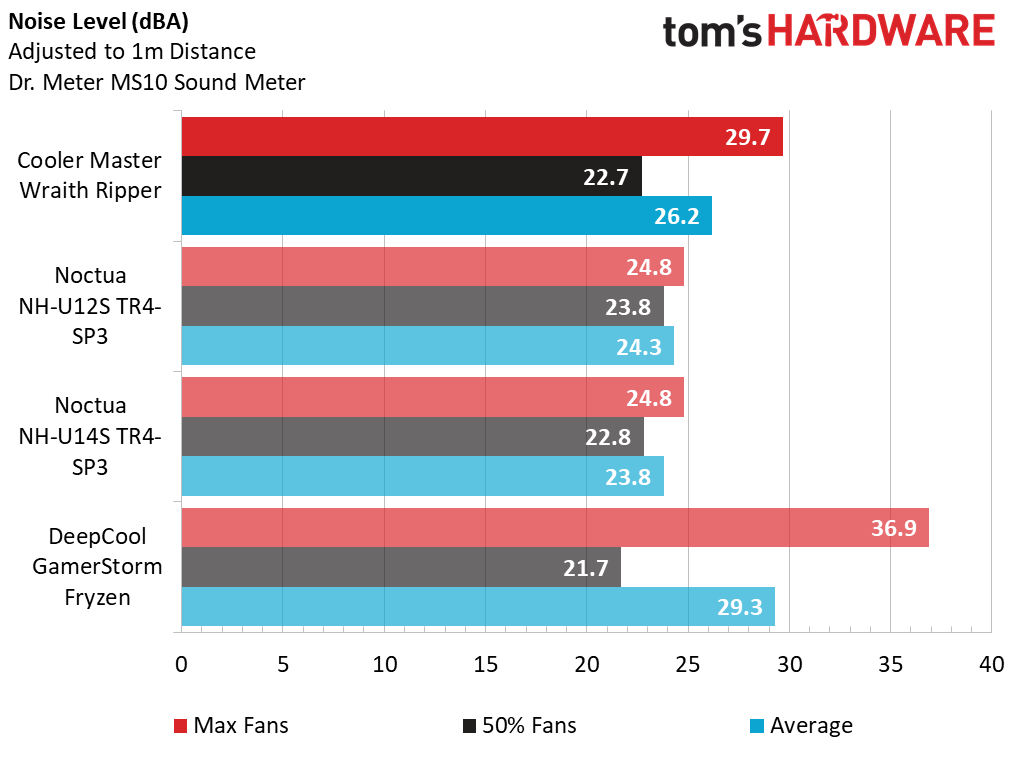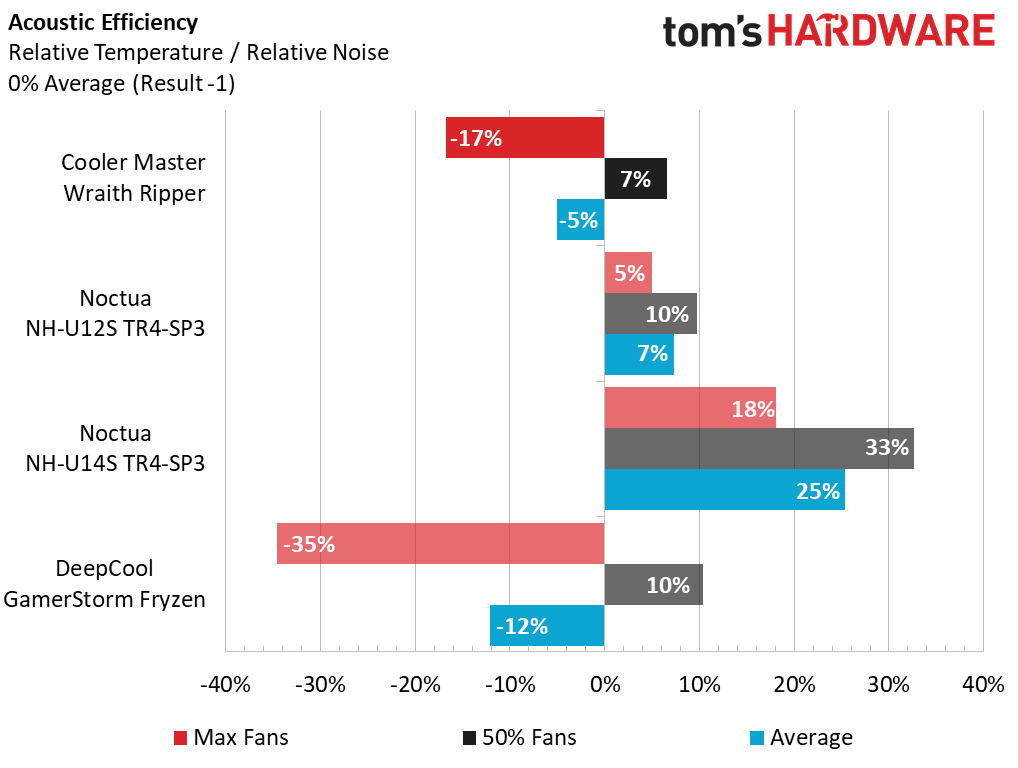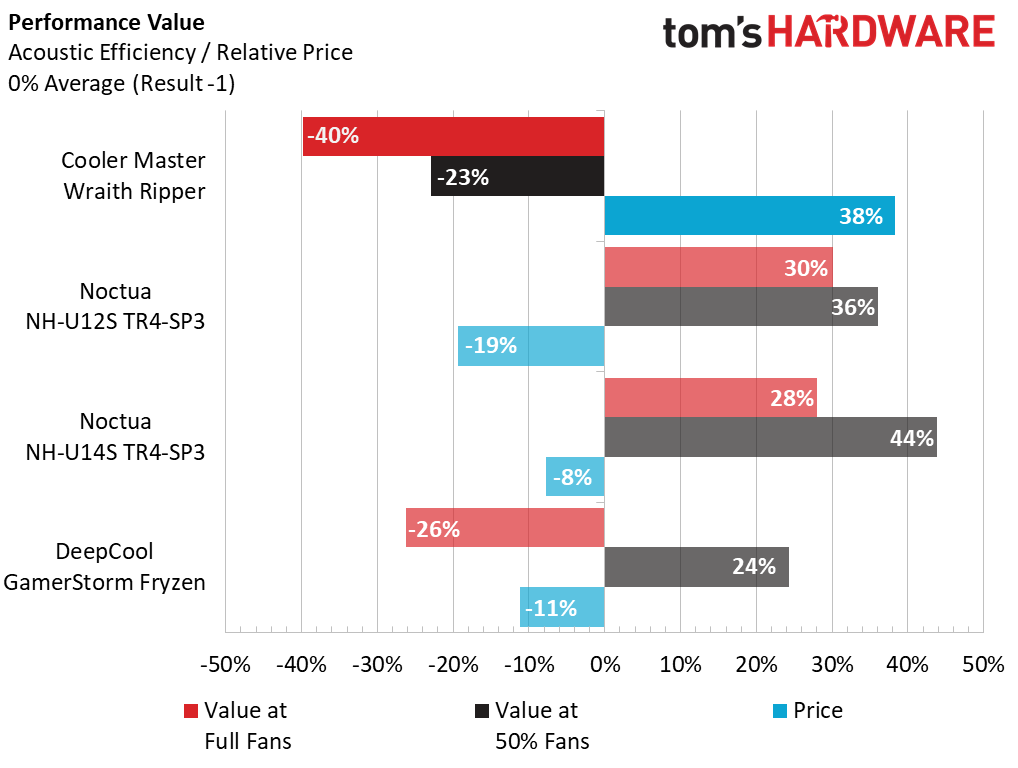Cooler Master Wraith Ripper TR4 Cooler Review: Pretty but Pricey
Why you can trust Tom's Hardware
Testing Results and Conclusion
We recently updated our Threadripper test bench, moving away from the 8-core Threadripper 1900X, settling into our new socket TR4 testbed, an AMD Threadripper 2990WX overclocked to 3.4Ghz at 1.20v on a Gigabyte X399 Aurous Xtreme motherboard. We have also gone back and re-tested some of our recent Threadripper coolers on the new 2990WX setup for updated comparison results.
We will be comparing the Cooler Master Wraith Ripper against the likes of the DeepCool GamerStorm Fryzen and a pair of Noctua coolers in the NH-U12S TR4-SP3 and the NH-U14S TR4-SP3.
While it manages to sneak in in just under results posted by the DeepCool GamerStorm Fryzen, the Cooler Master Wraith Ripper doesn’t manage to keep up with the pair of Noctua coolers. With the embedded cooling fan situated within the Wraith Ripper housing, decreased airflow appears to hinder temperatures of the adjacent motherboard power delivery system more than others in the comparison group.
Cooler Master lists the 120mm fan at 76.4 CFM at a peak of 2,750 RPM, although we registered an average speed slightly lower over our testing period. Spinning a 120mm fan up to those speeds will certainly raise questions around registered noise levels.
That said, with that high-speed fan actually situated inside the Wraith Ripper, the cooler’s own cooling fin tower and casing appear to act as dampers, at least somewhat limiting ambient noise. The aesthetic of the fully-enclosed tower cooler isn’t just pleasant to look at, it seems to help keep fan noise in check.
Comparing the relationship between thermal load testing and testeded noise levels, the Wraith Ripper finds itself teetering just on the underside of average in our comparison group. Both Noctua coolers post linear, positive results, while the performance and noise level of the GamerStorm Fryzen shows a larger gap for noise levels and thermal results at 100% fan speed.
The $120 price of the Cooler Master Wraith Ripper, easily edging into AIO liquid cooling territory, causes it to take a big hit on the value side. Meanwhile, the remainder of the coolers in the group sit in the more traditional, ‘enthusiast’ heatpipe cooler range of $70-$80 (£53-£60).
Get Tom's Hardware's best news and in-depth reviews, straight to your inbox.
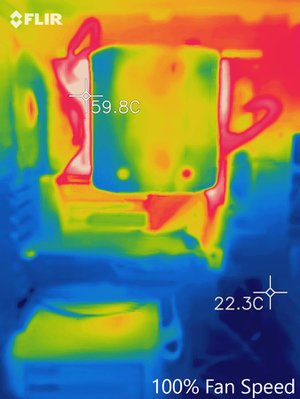
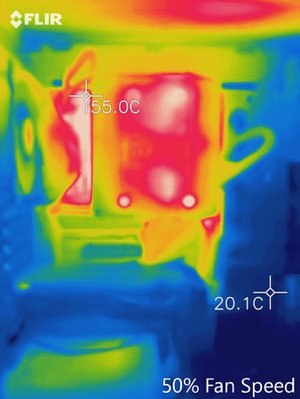
Imaging from the FLIR ONE Pro thermal imaging camera shows substantial heat soak with the fan operating at half speed and a significant ambient heat soak on the ceiling of the chassis directly above the front of the Wraith Ripper. Hot spots peak at the mounting bolt locations, as thermal loads draw through the steel mounting bolts and have limited dissipation due to decreased airflow. At full fan speed, the center mass of the Wraith Ripper shows a significant decrease of thermal loading, although some emanation of thermal drifting appears around the areas above the cooling tower.
The brilliant appearance and lighting available on the Cooler Master Wraith Ripper make for gorgeous presentation, although at the substantial price of $120 (£91), it's one of the most expensive air coolers we’ve tested in quite some time. In addition, there’s the considerable weight of the Wraith Ripper that has to be accounted for, especially if your take your PC to LAN parties, or even if you're just moving it to another room.
If you’re looking for an impressive demonstration of RGB-lit cooling and a truly titanic tower-cooler design, then going big means big bucks for a big air cooler with the Cooler Master Wraith Ripper. You'll also get impressively easy installation for your extra cooling dollars. But if performance and price matters more to you than sleek looks and Tron-like rainbow lights, Notcua makes a pair of air coolers that perform better and cost substantially less.
MORE: Best CPU Cooling
MORE: How To Choose A CPU Cooler
MORE: All Cooling Content
Photo Credits: Tom's Hardware

Garrett Carver is a contributor for Tom’s Hardware, primarily covering thermal compound comparisons and CPU cooling reviews; both air and liquid, including multiple variations of each.
